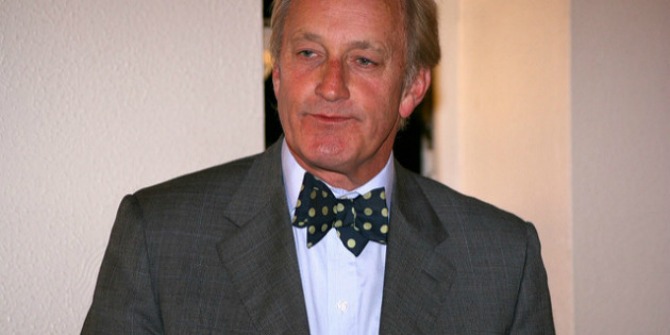 While the coming year confronts the Prime Minister with many challenges, it also offers many opportunities to have a major impact on the international stage. Liam Crosby sets the challenge to the Prime Minister to take the agenda forward on international development and explains the concerns underlying a new campaign which aims to make him do just that.
While the coming year confronts the Prime Minister with many challenges, it also offers many opportunities to have a major impact on the international stage. Liam Crosby sets the challenge to the Prime Minister to take the agenda forward on international development and explains the concerns underlying a new campaign which aims to make him do just that.
The coming year offers multiple chances for the Prime Minister to have a major impact on the international stage. He will host a plethora of international leadership positions, most notably Chair of the G8. While the political challenges of 2012—Europe, domestic economic policy and Leveson to name a few—may continue to pose difficulties for the PM, one area where he could show significant leadership is on the challenge of international development. As the UK is set to become the first major donor to reach its commitment to spending 0.7% of GNI on aid, it also has the opportunity to lead on international development through many other fora.
Despite the increasing criticism of aid, maintaining the commitment is the right thing to do. The evidence suggests that never before have we made such progress in reducing child mortality and taking steps towards ensuring that everyone has a fair chance at life. In 1990, 12 million children under the age of 5 died. In 2011 it had reduced to 6.9 million. 2013 offers many key chances to drive this progress forward, and David Cameron is in the best place to seize them. Yet the Achilles heel of development progress is hunger. Today, the United Nations’ Food and Agriculture Organisation estimates that there remain 870 million people who are unable to access the minimum amount of food needed to survive, and many more cannot access a nutritionally adequate diet. That the basic right to food still eludes so many is an outrage which must be addressed.
Last week 100 UK NGOs joined together for the first time in eight years, to demand that the government grabs the chance to make a big difference on global hunger and nutrition. The campaign, ‘Enough Food for Everyone, IF’, calls for increased investments in sustainable, small-scale agriculture and in nutrition. It is asking for donors, including the UK and others in the G8, to commit an additional $14.6bn for agriculture and $5bn annually for life-saving nutrition interventions.
History shows that public investment to support small-scale agriculture often drives growth and that in sub-Saharan Africa, agriculture-led growth is 11 times more effective at reducing poverty than growth originating in other sectors. Small-scale food producers, particularly women, and sustainable approaches for production deserve to be put at the top of the agenda and the campaign is right to challenge the government to support this model through public funds, not just through the large scale private investments that have become increasingly popular in DFID as well as multilateral organisations like the World Bank. Given the government’s focus on reducing spending, this seems ambitious. But with the government committed to increasing its spending on aid to 0.7% of GNI, there is an opportunity for new funds to become available for nutrition and agriculture investments.
But the demands of the new campaign go far beyond the traditional approach of aid agencies asking for more money. They focus on other ways that the G8 can act positively to reduce hunger and malnutrition in developing countries. Improving the governance and accountability of land agreements could help reverse the trend towards land grabs – that are resulting in an area the size of London being sold off every 6 days. Setting up a new Land Transparency Initiative, a relatively uncontroversial proposal which wouldn’t require financial commitments, could ensure due diligence for international investors and help protect farmers.
Tax is an area that Cameron has said he will focus on this year. Here the campaign is calling for the G8 to launch a new “Convention on Tax Transparency”, committing themselves (and pressuring tax havens) to commit to new legal standards on ‘beneficial ownership’. This involves legal requirements for companies and individuals to report to tax authorities on the assets that they profit from, rather than only the ones they legally own (thus getting around the problem of shell companies being used to funnel money through tax havens). This demand is pitched at a level that makes it politically realistic for the UK and other G8 countries to accept – more realistic, for example, than the Financial Transaction Tax to which other Eurozone countries have recently committed, but to which the UK and US in particular are strongly opposed.
Finally, the G8 can challenge corruption in developing countries by strengthening the Open Government Partnership. The group already has around 50 countries who have agreed to deliver on transparency commitments, allowing their citizens to have a say in government decisions. These demands are likely to be some of the most appealing for Cameron, given that his ‘Golden thread’ of development focuses primarily on transparency (along with governance and the ‘rule of law’ as ways to push international development.
The campaign clearly covers an ambitious breadth of different areas; a strength given the complexities and interdependencies of international development. In these times of austerity when many G8 countries are trying to ‘balance their books’ the G8 has the potential to deliver much more fundamental reforms, changing the international legal and regulatory changes that perpetuate hunger and drive inequality. Will it deliver? Well that’s the big IF.
Note: This article gives the views of the author, and not the position of the British Politics and Policy blog, nor of the London School of Economics. Please read our comments policy before posting.
Liam Crosby is a Policy and Research adviser at Save the Children UK, working on food security and nutrition issues. His work currently focusses on Save the Children’s nutrition campaign and on advocacy around the post-2015 development framework.








1 Comments